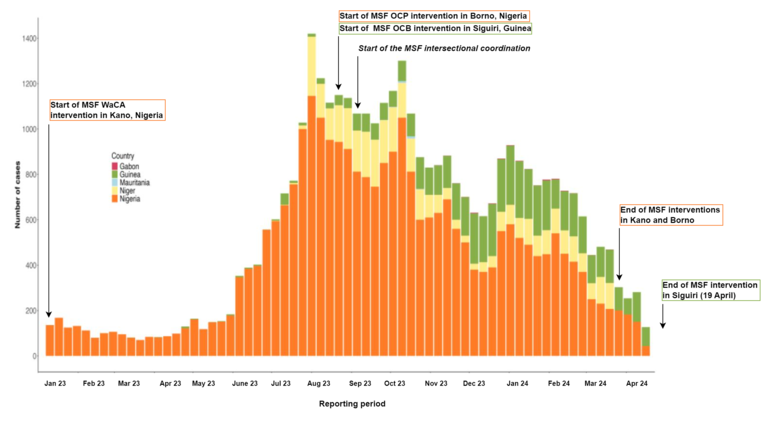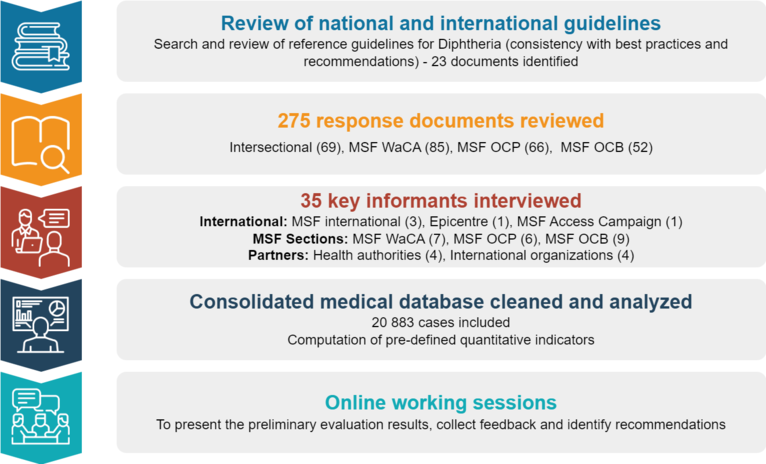Evaluation of MSF intersectional response to the diphtheria outbreak in West Africa
Project details
Year: 2024-2025
Client: Doctors without Borders (MSF) - Stockholm Evaluation Unit
Objectives:
The overarching objectives of the evaluation were to assess the MSF response to the diphtheria outbreak in West Africa to identify good practices, challenges and areas for improvement.
Deliverables:
- Inception report
- Facilitator’s agenda and supporting material for a working session
- Final evaluation report
- Webinar slide deck
The final evaluation report is publicly available on the MSF Intersectional Evaluation Group website .
Performed activities
In 2023, a major diphtheria outbreak hit West Africa, with Nigeria being the most affected country. In response, MSF launched interventions in six countries, managing over 22 000 suspected cases, primarily in Nigeria, Guinea, and Niger. As cases surged, MSF established an intersectional coordination platform in August 2023 to streamline its response.

Figure 1. Timeline of the diphtheria outbreak and MSF interventions in West Africa
To capitalize on this experience and identify lessons for future outbreak responses, MSF, through its Stockholm Evaluation Unit, has contracted Sigia to evaluate the response across three key interventions: in Kano, Nigeria; in Borno, Nigeria; and in Siguiri, Guinea.
The evaluation was informed through the review of 288 documents, the interview of 35 key informants, the analysis of the patients’ database, along with the conduct of a two-day online workshop.

Figure 2. Overview of the activities conducted for the evaluation
The evaluation report provides actionable recommendations and findings for each of the following evaluation questions:
- How was the MSF response designed, implemented and coordinated in each intervention and overall, before and after the implementation of intersectional coordination?
- How did MSF interventions respond to priority needs in the different settings?
- How was MSF involvement compatible and coordinated with other actors’ presence and capacity?
- What were the key outputs, outcomes and unintended consequences of the MSF response in each intervention and overall?
- To what extent did the MSF response positively or negatively influence the control of the diphtheria outbreak?
- What was the effect of the intersectional coordination on the MSF response outputs and outcomes?
- What were the primary challenges faced in the different MSF interventions and overall and the solutions used to surmount them?
- Which good practices were observed in the MSF response to the outbreak?
- What strategic recommendations can be made for improving MSF’s response to future outbreaks in general and during diphtheria outbreaks in particular?
- How can intersectional coordination of MSF outbreak response be improved based on the experience from this outbreak?
The final evaluation report is publicly available on the MSF Intersectional Evaluation Group website .
